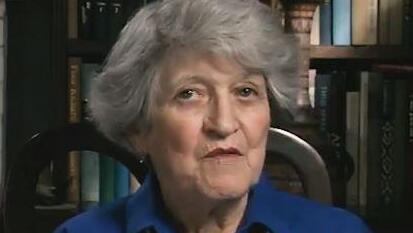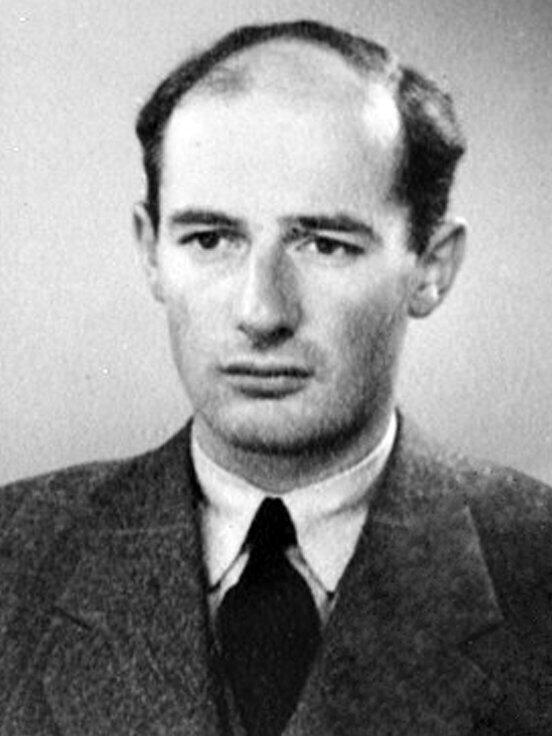Agnes Adachi
(USC shoah foundation, Zikaron BaSalon)
Agnes Adachi was able to secure Swedish citizenship for herself during World War II but was still unable to leave Hungary. Witnessing the mass murder of her Jewish brethren by Hungarian fascists, she teamed up with famed Swedish diplomat Raoul Wallenberg in his efforts to save thousands of Jews. Here's her incredible story.
Agnes Adachi (nee Mandl Ágnes) was born in Budapest, Hungary in 1918, the only child of a Jewish businessman who owned a textile factory.
After finishing secondary school, she traveled to Germany to stay with relatives. During her visit, she had the opportunity to attend the 1936 Olympic Games and witness the renowned African-American runner Jesse Owens in action.
Later, from 1939 to 1942, she pursued her higher education at a university in Switzerland.
In 1944, after the German occupation of Hungary, she secured a Swedish protective passport (Schutzpass) but was unable to travel to Sweden at that time.
The deportation of Hungarian Jews from all areas of Hungary except Budapest began in spring 1944, resulting in the murder of almost the entire rural Jewish population.
However, Jews in Budapest remained relatively safe until the mass deportations in the fall of 1944. Before Christmas of that year, Arrow Cross Party members shot Jews into the Danube River en masse.
Agnes joined Wallenberg and his team and played an active role in rescue operations, including going to sites where massacres were taking place and saving people.
Budapest was liberated by the Soviet army in early 1945. Wallenberg was immediately captured by the Soviets and taken to Moscow, where he was imprisoned and later died.
That same year Agnes and her family left Hungary. They settled in Philadelphia in the United States. She subsequently married and had two sons.
In an interview given in 1996, Adachi lays out her incredible story.
Thanks to the USC Shoah Foundation who are the caretakers of a treasure of 52,000 testimonies of survivors of and witnesses to the Holocaust, their stories can reach millions of classrooms and museums around the world to ensure that the voices of survivors will be heard, understood, discussed, and perpetuated for generations.





